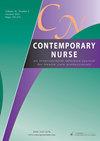小额激励在定性研究中的作用,以及新冠肺炎期间在线招聘的影响。
IF 1.2
4区 医学
Q3 NURSING
引用次数: 1
摘要
本文章由计算机程序翻译,如有差异,请以英文原文为准。
The role of small incentives in qualitative research, and the impact of online recruitment during COVID.
Small incentives such as cake, multi-coloured ‘multi-pens’ and cleaning cloths for spectacles are important tools to drive engagement when conducting qualitative focus groups with clinicians or students. For years, ethics committees have accepted hosting lunch, the offering of a free pen, or some cake or fruit being delivered to clinical areas during study recruitment and participation phases. When developing a project grant budget, it is important to factor in such costs, as these small incentives can prove critical to engagement and participation at a clinical level. Universities have often been helpful to provide branded pens from Schools of Nursing as a tool that also market their organisation. However, in these tough financial economic times, University sector budgets are tightening. Branded incentives can be helpful to maintain interest with the study as the project develops but also as a mechanism of promotion and engagement for the University in the clinical context. Pre-COVID times, we would conduct focus groups face-face, often within clinical units. Inservice time after handover, when shifts are crossing over and there is double staffing, is a prime time to maximise participation in qualitative studies. This time in the nurses’ shift is often earmarked for any number of activities that nurses typically do not have protected time to conduct, in addition to it being time for a meal break. During COVID, qualitative study participation has mostly transitioned away from face-to-face to virtual modes such as phone, zoom or skype interviews or focus groups. The role of these small token incentives has often been overlooked or impossible to deliver. Researchers should seek COVID-safe alternatives, such as home delivery food vouchers for small breakfast items or services such as Uber Eats, or a digital badge to recognise participation. Actions to overtly appreciate nurses willingness to participate in research are necessary now, more than ever.
求助全文
通过发布文献求助,成功后即可免费获取论文全文。
去求助
来源期刊

Contemporary Nurse
医学-护理
CiteScore
2.00
自引率
6.20%
发文量
38
审稿时长
6-12 weeks
期刊介绍:
Contemporary Nurse is an international peer-reviewed journal designed to increase nursing skills, knowledge and communication, assist in professional development and to enhance educational standards by publishing stimulating, informative and useful articles on a range of issues influencing professional nursing research, teaching and practice.
Contemporary Nurse is a forum for nursing educators, researchers and professionals who require high-quality, peer-reviewed research on emerging research fronts, perspectives and protocols, community and family health, cross-cultural research, recruitment, retention, education, training and practitioner perspectives.
Contemporary Nurse publishes original research articles, reviews and discussion papers.
 求助内容:
求助内容: 应助结果提醒方式:
应助结果提醒方式:


